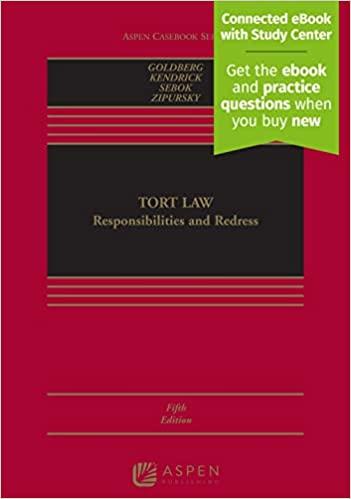Answered step by step
Verified Expert Solution
Question
1 Approved Answer
EVIDENCE STUDY QUESTIONS 1. Define the inquisitorial system 2. Define trier of law. 3. What is the test to assess the competency of a witness?
- EVIDENCE STUDY QUESTIONS
- 1. Define the inquisitorial system
- 2. Define trier of law.
- 3. What is the test to assess the competency of a witness?
- 4. What is the principled exception to the hearsay rule?
- 5. What is a voir dire?
- 6. What are the sources of evidence law?
- 7. Define the reverse onus.
- 8. Define Circumstantial Evidence
- 9. Define Res ipsa loquitur
- 10. Define Conscriptive evidence
- 11. Define Collaborative evidence
- 12. Define relevance
- 13. Define materiality
- 14. Define reliability
- 15. Define availability
- 16. What is a competent witness?
- 17. What is spousal privilege?
- 18. When can spousal privilege be waived?
- 19. When can hearsay be admitted?
- 20. What is past recollection
- 21. What does probative value mean?
- 22. What is character evidence?
- 23. When can character evidence be admitted?
- 24. If the accused presents character evidence what can the Crown do?
- 25. What is the Oickle rule?
- 26. When do you use leading questions?
- 27. What is the general limitation period?
- 28. When is a Certificate of Offence?
- 29. What is a summons?
- 30. What is an Information?
- 31. What is a party under a disability?
- 32. What is a constitutional question?
- 33. How are business records admissible?
- 34. What is the test for past recollection?
- 35. What matters can be addressed at a pre-hearing conference as per the Statutory Powers
- and Procedures Act.
- 36. How much is the winning party entitled to in Small Claims with respect to fees?
- 37. What is a stay of proceedings?
- 38. Define reconsideration:
- 39. What is an enabling statute?
- 40. Review the case of R v. Stinchcombe
- 41. What is a review by the ombudsman
- 42. Review the procedure for commencing a Part 1 POA quasi criminal proceeding.
- 43. Review the procedure for starting a Small Claims Court proceeding.
- 44. What is the test for expert evidence?
- 45. What is the Confession Rule?
- 46. What is a vicarious admission?
- 47. Why would evidence be excluded by a court?
- 48. Define re-examination. When is it permitted?
- 49. What is the common law?
- 50. Define corroboration in the context of evidence law.
- 51. Define presumption of innocence.
- 52. What does the Crown have to prove in regards to statements or confessions made to a
- person in authority?
- 53. Define preponderance of evidence
- 54. Define prima facie.
- 55. What is a non-suit
- 56. What is the presumption of mental competence?
- 57. What is hearsay?
- 58. Define trier of fact.
- 59. Define Direct Evidence.
- 60. Define the adversarial system
- 61. When is a reverse onus permissible?
- 62. Define Judicial Notice
Step by Step Solution
There are 3 Steps involved in it
Step: 1

Get Instant Access to Expert-Tailored Solutions
See step-by-step solutions with expert insights and AI powered tools for academic success
Step: 2

Step: 3

Ace Your Homework with AI
Get the answers you need in no time with our AI-driven, step-by-step assistance
Get Started


